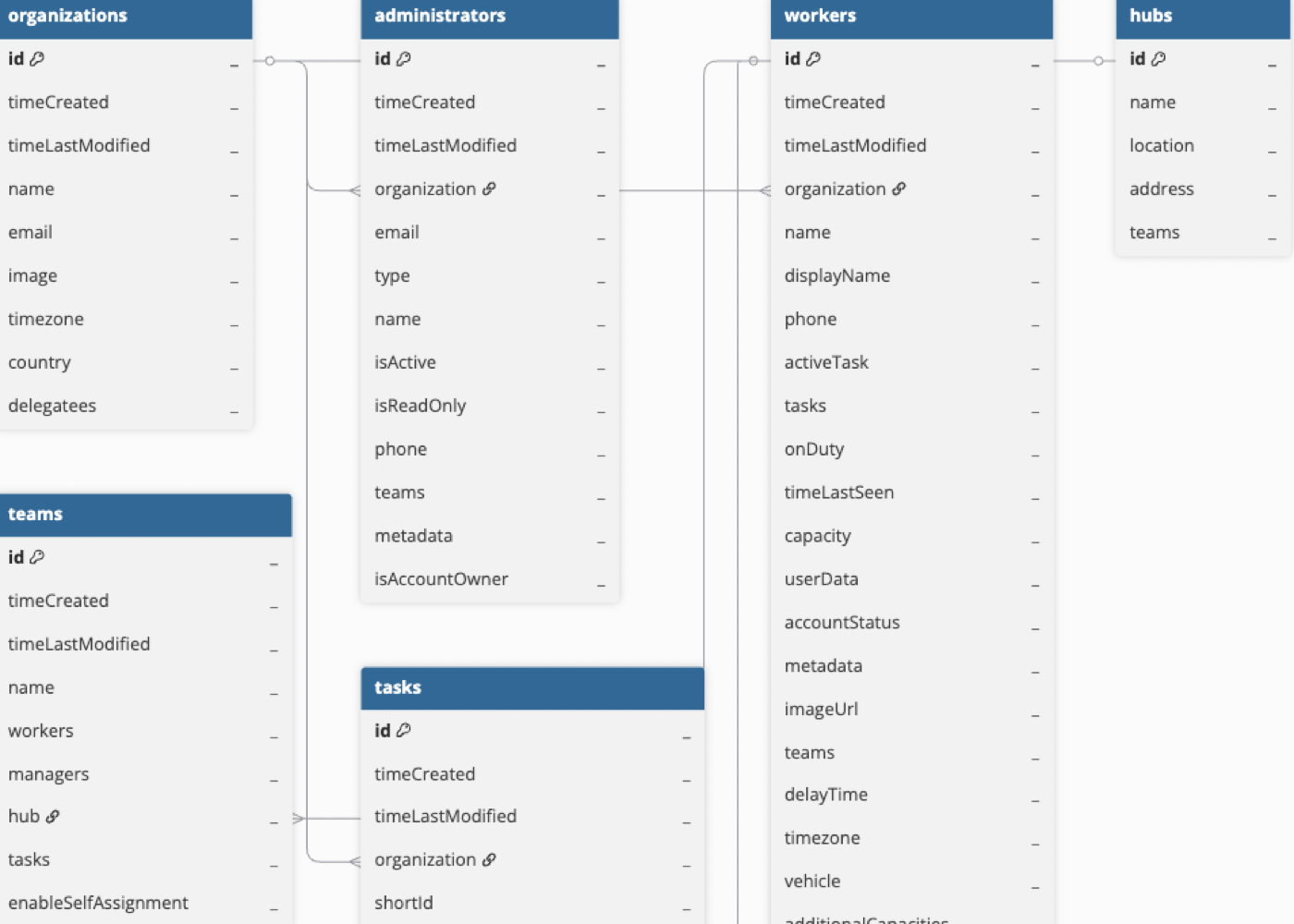Onfleet is a Software-as-a-Service (SaaS) based SaaS-based delivery management platform that helps large and small businesses manage their last-mile deliveries. It provides features such as auto-dispatching, tracking of delivery drivers, optimal route suggestions, and automatic notifications and real-time tracking for recipients.
You can replicate the data from your Onfleet account to a Destination database or data warehouse using Hevo Pipelines. Hevo ingests the data objects in Full Load mode. Refer to section, Data Model for the list of supported objects.
Hevo uses the Onfleet JSON RESTful API to replicate the data present in your Onfleet account to the desired Destination database or data warehouse for scalable analysis.
Prerequisites
Creating the API Key
You require an API key to authenticate Hevo on your Onfleet account. The API key does not expire and can be reused for all your Pipelines.
Note: You must log in as an Account Owner or an Admin user to perform these steps.
Perform the following steps to obtain the API key:
-
Log in to your Onfleet account.
-
In the top right corner, click Settings.
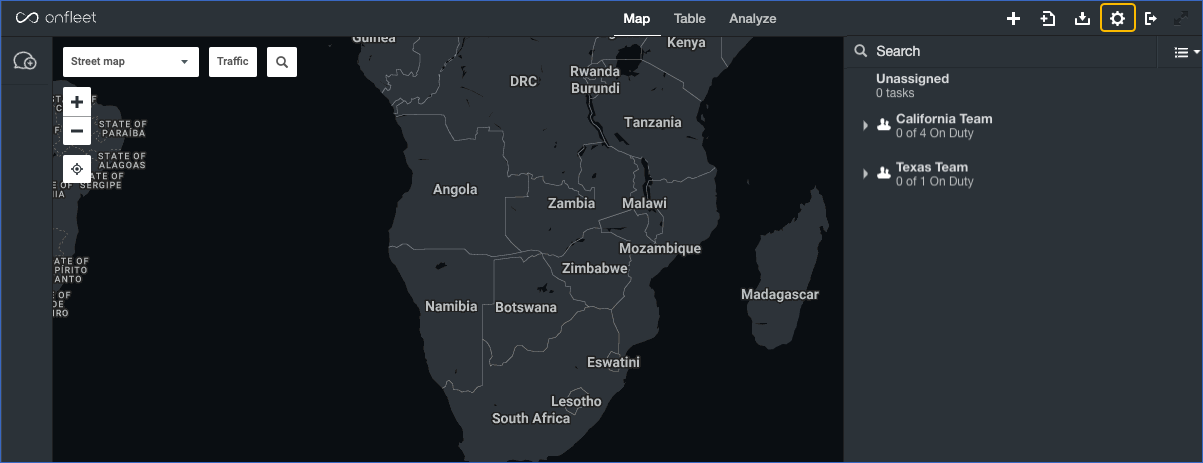
-
In the left navigation pane of the pop-up window, click API & Webhooks.
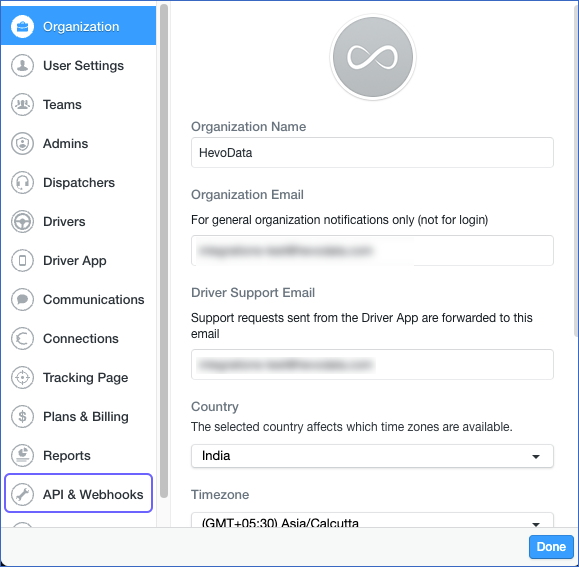
-
In the API Keys section, click +.
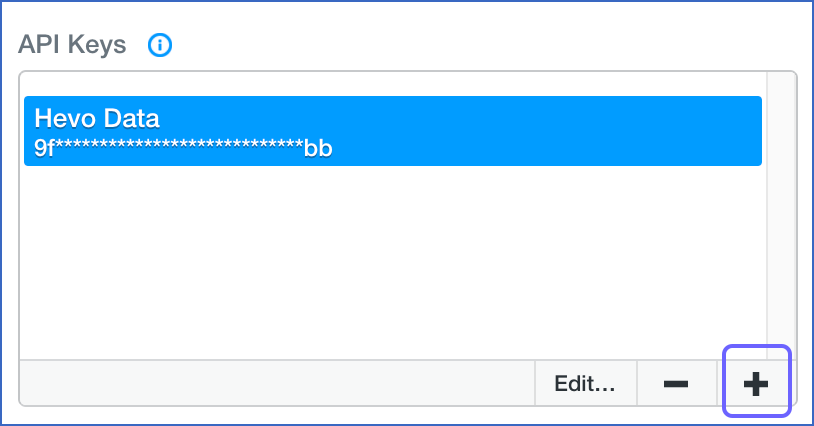
-
In the Add API key pop-up window, specify the following:
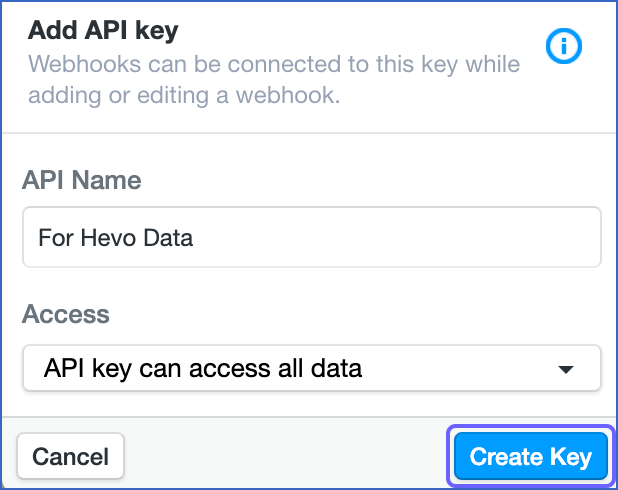
-
Click Create Key.
-
In the API Keys section, double-click the API key.
-
In the Edit API key pop-up window, copy the API key and save it securely like any other password. Use this key while configuring your Hevo Pipeline.
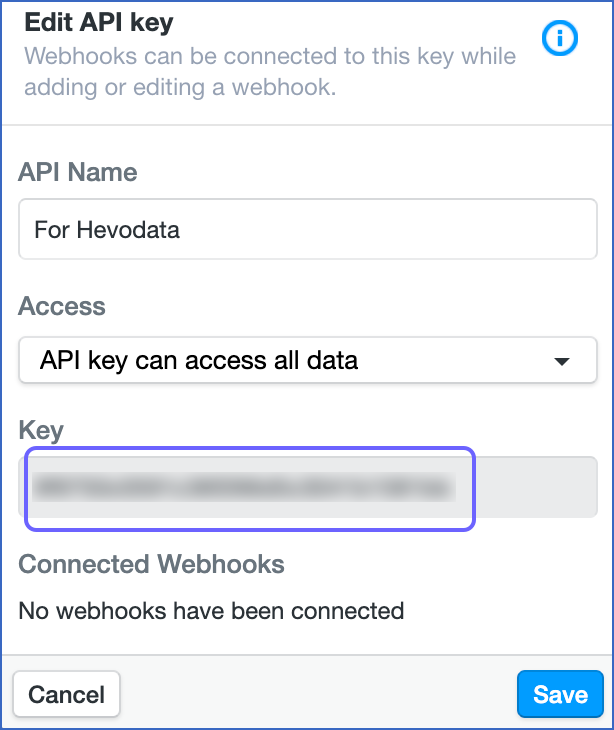
Configuring Onfleet as a Source
Perform the following steps to configure Onfleet as the Source in your Pipeline:
-
Click PIPELINES in the Navigation Bar.
-
Click + Create Pipeline in the Pipelines List View.
-
On the Select Source Type page, select Onfleet.
-
On the Select Destination Type page, select the type of Destination you want to use.
-
On the Configure your Onfleet Source page, specify the following:
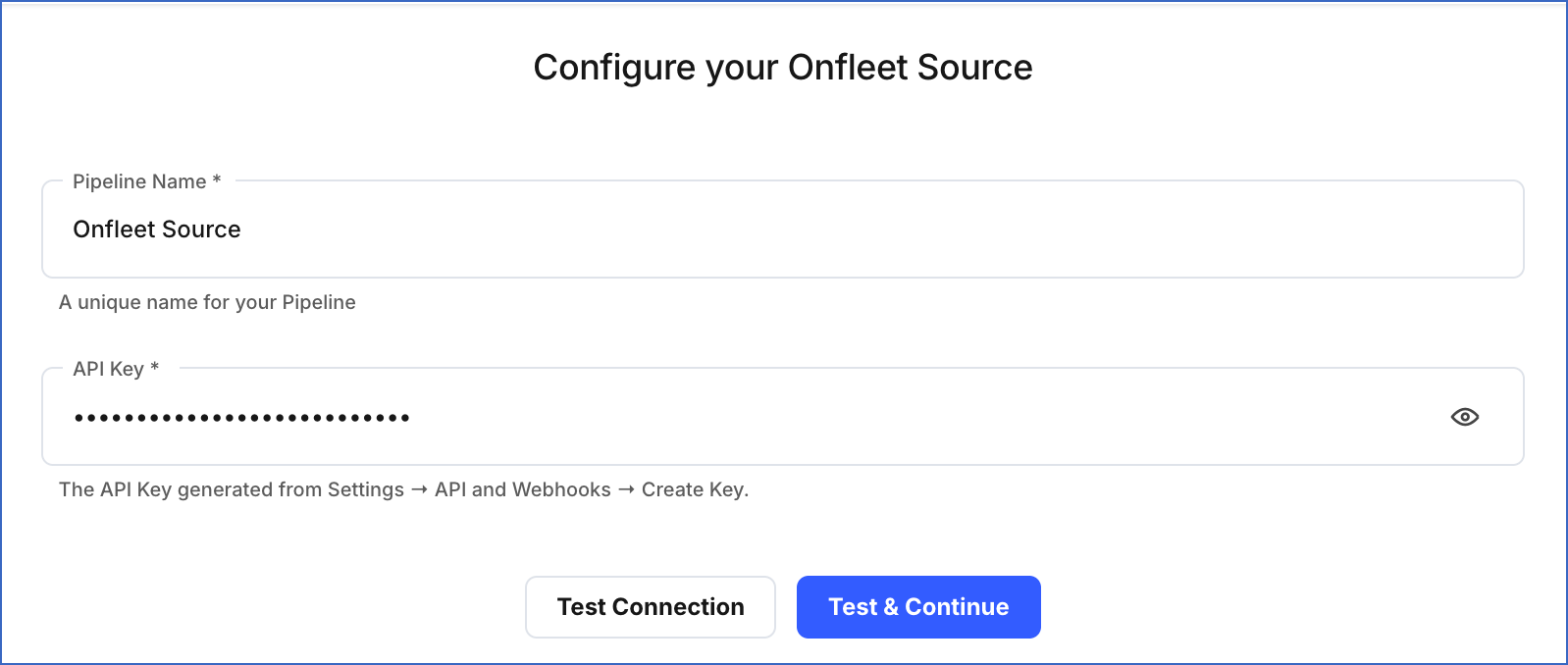
-
Pipeline Name: A unique name for the Pipeline, not exceeding 255 characters.
-
API Key: The API key that you created in your Onfleet account.
-
Click Test & Continue.
-
Proceed to configuring the data ingestion and setting up the Destination.
Data Replication
| For Teams Created |
Default Ingestion Frequency |
Minimum Ingestion Frequency |
Maximum Ingestion Frequency |
Custom Frequency Range (in Hrs) |
| Before Release 2.21 |
1 Hr |
1 Hr |
24 Hrs |
1-24 |
| After Release 2.21 |
6 Hrs |
30 Mins |
24 Hrs |
1-24 |
Note: The custom frequency must be set in hours as an integer value. For example, 1, 2, or 3, but not 1.5 or 1.75.
Hevo ingests all the objects in Full Load mode in each run of the Pipeline.
Schema and Primary Keys
Hevo uses the following schema to upload the records in the Destination database. For a detailed view of the objects, fields, and relationships, click the ERD.
Data Model
The following is the list of tables (objects) that are created at the Destination when you run the Pipeline:
| Object |
Description |
| Administrators |
Contains the details of all the users who can manage or configure your Onfleet account, such as adding or removing a team from the organization. |
| Hubs |
Contains the details of the locations that serve as the start and end of routes for workers. |
| Organizations |
Contains the details of the companies connected to an Onfleet account. |
| Teams |
Contains the details of all various groups of workers and dispatchers in your Onfleet account. |
| Tasks |
Contains the details of the pickup or delivery works assigned to workers in an organization. |
| Workers |
Contains the details of the people who deliver the items to their respective destinations. |
Read the detailed Hevo documentation for the following related topics:
Source Considerations
-
Rate Limit: Onfleet imposes a limit of 20 API calls per second per organization. If the limit is exceeded, Hevo defers the ingestion till the limits reset.
Limitations
-
Hevo does not capture information for records deleted in the Source objects.
-
Hevo does not load data from a column into the Destination table if its size exceeds 16 MB, and skips the Event if it exceeds 40 MB. If the Event contains a column larger than 16 MB, Hevo attempts to load the Event after dropping that column’s data. However, if the Event size still exceeds 40 MB, then the Event is also dropped. As a result, you may see discrepancies between your Source and Destination data. To avoid such a scenario, ensure that each Event contains less than 40 MB of data.
Revision History
Refer to the following table for the list of key updates made to this page:
| Date |
Release |
Description of Change |
| Nov-12-2025 |
NA |
Updated the document as per the latest Hevo UI. |
| Sep-18-2025 |
NA |
Updated section, Configuring Onfleet as a Source as per the latest UI. |
| Jul-07-2025 |
NA |
Updated the Limitations section to inform about the max record and column size in an Event. |
| Jan-07-2025 |
NA |
Updated the Limitations section to add information on Event size. |
| Mar-05-2024 |
2.21 |
Updated the ingestion frequency table in the Data Replication section. |
| Nov-08-2022 |
2.01 |
New document. |






